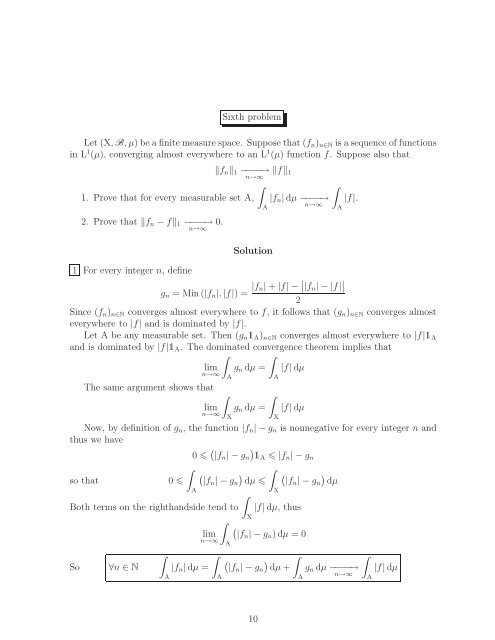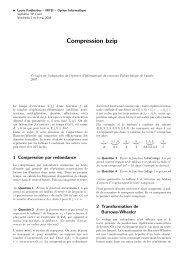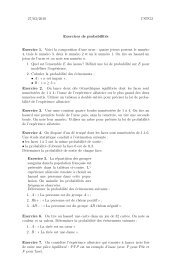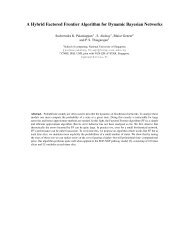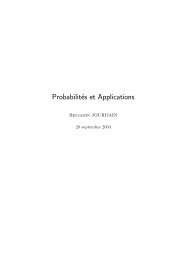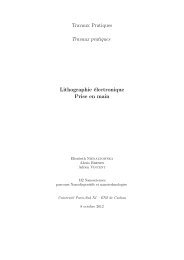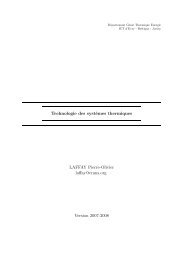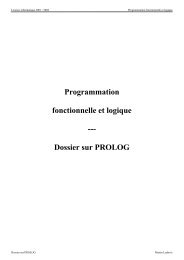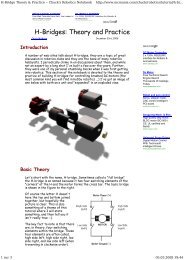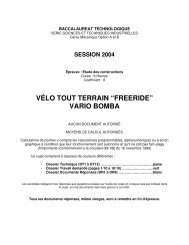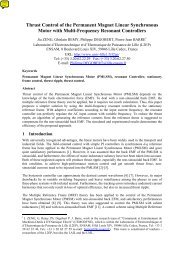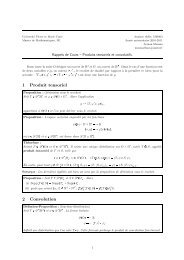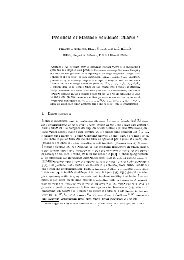Ph.D. Qualifying Exam â Spring 2004
Ph.D. Qualifying Exam â Spring 2004
Ph.D. Qualifying Exam â Spring 2004
You also want an ePaper? Increase the reach of your titles
YUMPU automatically turns print PDFs into web optimized ePapers that Google loves.
Sixth problemLet (X, B, µ) be a finite measure space. Suppose that (f n ) n∈N is a sequence of functionsin L 1 (µ), converging almost everywhere to an L 1 (µ) function f. Suppose also that‖f n ‖ 1 −−−−→ ‖f‖ 1n→∞∫1. Prove that for every measurable set A, |f n | dµ −−−−→n→∞2. Prove that ‖f n − f‖ 1 −−−−→n→∞ 0. SolutionA∫A|f|.1 For every integer n, defineg n = Min (|f n |, |f|) = |f n| + |f| − ∣ |fn | − |f| ∣ 2Since (f n ) n∈N converges almost everywhere to f, it follows that (g n ) n∈N converges almosteverywhere to |f| and is dominated by |f|.Let A be any measurable set. Then (g n 1 A ) n∈N converges almost everywhere to |f|1 Aand is dominated by |f|1 A . The dominated convergence theorem implies that∫ ∫limn→∞The same argument shows thatlimn→∞∫AXg n dµ =∫g n dµ =AX|f| dµ|f| dµNow, by definition of g n , the function |f n | − g n is nonnegative for every integer n andthus we have0 ( )|f n | − g n 1A |f n | − g n∫so that0 ∫( )|fn | − g n dµ ( )|fn | − g n dµA∫XBoth terms on the righthandside tend to |f| dµ, thusX∫(|fn | − g n ) dµ = 0So∀n ∈ N∫Alimn→∞∫|f n | dµ =AA(|fn | − g n)dµ +∫Ag n dµ −−−−→n→∞∫A|f| dµ10


